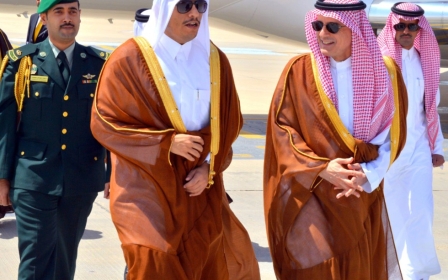Royal Navy sailors left in dark in Gulf as warships break down

British Royal Navy personnel have been left stranded for hours in total darkness in the Gulf as billion-dollar warships have broken down because their engines are prone to failure in warmer waters, defence experts have told parliament's defence committee.
The engines of the six 8,000-ton Type 45 destroyers – four of which are currently at sea – cannot generate enough heat in warmer waters, raising concerns about the vulnerability of some of the UK’s key naval assets.
The ships are now reportedly set to undergo a refurbishment that will cost tens of millions of pounds.
The revelations of the design flaws came as a former head of the navy told a key parliamentary committee on Tuesday that the naval fleet – which is currently smaller than the taskforce that was sent to reclaim the Falkland Islands following the 1982 invasion by Argentina – is not being kept up to date because the Ministry of Defence has run out of money.
“There is almost no money available this year and we are really strapped next year. The government aren't coming clean about that,” Admiral Lord West told the defence committee.
West told the committee that the delay of repairs to the fleet was "bloody dangerous" and warned that continued postponement could leave the ships “grossly inadequate”.
John Hudson, managing director of BAE Systems which built the destroyers, also speaking at the hearing, said: "I think the operating profile that was considered at the time was there would not be repeated and continuous operations in the Gulf ... and therefore it wasn’t designed explicitly and uniquely for operations in the Gulf."
Britain last year commenced construction work on a new naval base in Bahrain, the first to be built east of the Suez canal since the UK withdrew from the Gulf in 1971.
Tomas Leahy, director of Rolls-Royce’s Europe, Middle East and Asia naval programmes, told the committee that the conditions specified by the MoD were not in line with warships that would be located in the Gulf.
“So the equipment is having to operate in far more arduous conditions than were initially required,” he said.
Stay informed with MEE's newsletters
Sign up to get the latest alerts, insights and analysis, starting with Turkey Unpacked
Middle East Eye delivers independent and unrivalled coverage and analysis of the Middle East, North Africa and beyond. To learn more about republishing this content and the associated fees, please fill out this form. More about MEE can be found here.




